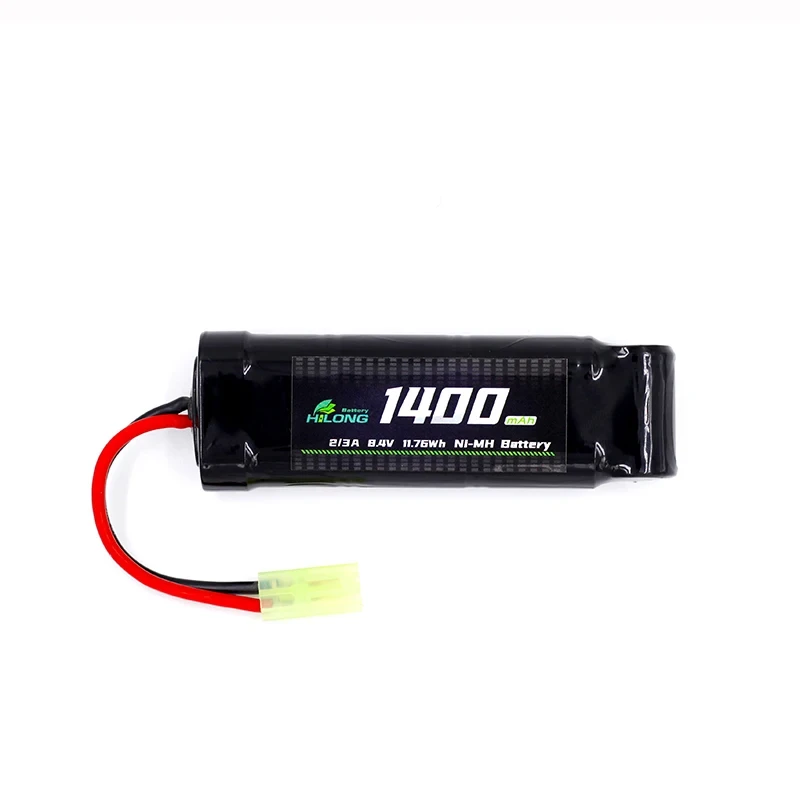Remote-controlled (RC) vehicles, such as cars and boats, have gained immense popularity among hobbyists and enthusiasts. These vehicles are powered by batteries that provide the necessary electrical energy for their operation.
How long do RC car/boat batteries typically last? The average duration of an RC car/boat battery can vary based on many factors. On average, Li-ion batteries for RC vehicles can last between 20-40 minutes of continuous runtime per charge. Higher-capacity Li-ion batteries may offer extended run times, reaching up to 60 minutes or more. NiMH batteries typically provide slightly shorter run times compared to Li-ion batteries. On average, they can last between 15-30 minutes per charge.
It's important to note that these figures are approximate and can vary depending on the specific battery, vehicle, and operating conditions
We know that there are many factors that affect battery life. Here we'll explore the factors that affect battery life and provide some tips for maximizing battery performance.

Factors Affecting RC Car/Boat Battery Life
Several factors can influence the lifespan of an RC car/boat battery. Understanding these factors can help you manage and prolong the life of your battery.
Battery Type
RC vehicles typically use rechargeable lithium-ion (Li-ion) or nickel-metal hydride (NiMH) batteries. Li-ion RC car battery generally offers longer run times and higher energy density compared to Ni-MH RC car battery.
Battery Capacity
The capacity of an RC car/boat battery is measured in milliampere-hours (mAh). Higher-capacity batteries tend to provide longer run times, but they may also take longer to charge.
Vehicle Speed and Performance
Faster and more powerful RC cars/boats tend to drain batteries more quickly. Aggressive acceleration, high-speed maneuvers, and continuous use of additional features (such as lights or sound systems) can significantly impact battery life.
Operating Conditions
Environmental factors, such as temperature and humidity, can affect the performance and overall life of RC car/boat batteries. Extreme temperatures can reduce battery efficiency and lifespan.
Maximizing RC Car/Boat Battery Performance
To maximize the performance and lifespan of your RC car/boat battery, it may be beneficial to consider implementing the following practices.
Proper Charging
Follow the battery manufacturer's instructions for charging your battery. Overcharging or undercharging can negatively impact battery life and performance. Avoid leaving batteries connected to chargers longer than necessary.
Regular Maintenance
Keep your battery and vehicle clean and free from dust, debris, or moisture. Clean the battery contacts and ensure a secure connection.
Temperature Control
Avoid operating RC vehicles in extreme temperatures. High heat or cold can reduce battery efficiency and lifespan. Store batteries in a cool, dry place when not in use.
Moderate Driving
While it's fun to push your RC car/boat to its limits, aggressive driving can drain the battery faster. Opt for a balance between performance and battery life to enjoy longer run times.
Use Appropriate Accessories
Additional features like lights, sound systems, or other accessories can drain the battery more quickly. Use them judiciously to extend battery life.
In conclusion, the duration of an RC car/boat battery largely depends on various factors, including battery type, capacity, vehicle performance, and operating conditions.
On average, the Li-ion RC car battery offers longer run times than the Ni-MH RC car battery. By following proper charging practices, performing regular maintenance, controlling operating temperatures, driving moderately, and using accessories wisely, you can maximize the performance and lifespan of your RC car/boat battery.
You should always refer to the manufacturer's guidelines and instructions specific to your RC car/boat and battery for the best results. As one of the professional battery manufacturers in China, Hilong Battery will give you professional advice on purchasing and maintaining RC Car/boat batteries. Here contact us for more.



.jpg)

